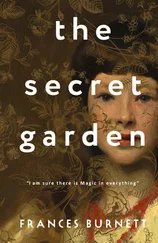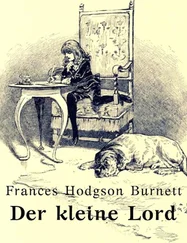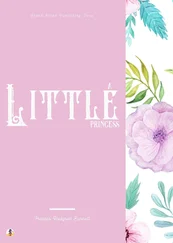"Things happen to people by accident," she used to say. "A lot of nice accidents have happened to me. It just happened that I always liked lessons and books, and could remember things when I learned them. It just happened that I was born with a father who was beautiful and nice and clever, and could give me everything I liked. Perhaps I have not really a good temper at all, but if you have everything you want and everyone is kind to you, how can you help but be good-tempered? I don't know"--looking quite serious--"how I shall ever find out whether I am really a nice child or a horrid one. Perhaps I'm a hideous child, and no one will ever know, just because I never have any trials."
"Lavinia has no trials," said Ermengarde, stolidly, "and she is horrid enough."
Sara rubbed the end of her little nose reflectively, as she thought the matter over.
"Well," she said at last, "perhaps--perhaps that is because Lavinia is growing." This was the result of a charitable recollection of having heard Miss Amelia say that Lavinia was growing so fast that she believed it affected her health and temper.
Lavinia, in fact, was spiteful. She was inordinately jealous of Sara. Until the new pupil's arrival, she had felt herself the leader in the school. She had led because she was capable of making herself extremely disagreeable if the others did not follow her. She domineered over the little children, and assumed grand airs with those big enough to be her companions. She was rather pretty, and had been the best-dressed pupil in the procession when the Select Seminary walked out two by two, until Sara's velvet coats and sable muffs appeared, combined with drooping ostrich feathers, and were led by Miss Minchin at the head of the line. This, at the beginning, had been bitter enough; but as time went on it became apparent that Sara was a leader, too, and not because she could make herself disagreeable, but because she never did.
"There's one thing about Sara Crewe," Jessie had enraged her "best friend" by saying honestly, "she's never `grand' about herself the least bit, and you know she might be, Lavvie. I believe I couldn't help being--just a little--if I had so many fine things and was made such a fuss over. It's disgusting, the way Miss Minchin shows her off when parents come."
"`Dear Sara must come into the drawing room and talk to Mrs. Musgrave about India,'" mimicked Lavinia, in her most highly flavored imitation of Miss Minchin. "`Dear Sara must speak French to Lady Pitkin. Her accent is so perfect.' She didn't learn her French at the Seminary, at any rate. And there's nothing so clever in her knowing it. She says herself she didn't learn it at all. She just picked it up, because she always heard her papa speak it. And, as to her papa, there is nothing so grand in being an Indian officer."
"Well," said Jessie, slowly, "he's killed tigers. He killed the one in the skin Sara has in her room. That's why she likes it so. She lies on it and strokes its head, and talks to it as if it was a cat."
"She's always doing something silly," snapped Lavinia. "My mamma says that way of hers of pretending things is silly. She says she will grow up eccentric."
It was quite true that Sara was never "grand." She was a friendly little soul, and shared her privileges and belongings with a free hand. The little ones, who were accustomed to being disdained and ordered out of the way by mature ladies aged ten and twelve, were never made to cry by this most envied of them all. She was a motherly young person, and when people fell down and scraped their knees, she ran and helped them up and patted them, or found in her pocket a bonbon or some other article of a soothing nature. She never pushed them out of her way or alluded to their years as a humiliation and a blot upon their small characters.
"If you are four you are four," she said severely to Lavinia on an occasion of her having--it must be confessed--slapped Lottie and called her "a brat;" "but you will be five next year, and six the year after that. And," opening large, convicting eyes, "it takes sixteen years to make you twenty."
"Dear me," said Lavinia, "how we can calculate!" In fact, it was not to be denied that sixteen and four made twenty--and twenty was an age the most daring were scarcely bold enough to dream of.
So the younger children adored Sara. More than once she had been known to have a tea party, made up of these despised ones, in her own room. And Emily had been played with, and Emily's own tea service used-- the one with cups which held quite a lot of much-sweetened weak tea and had blue flowers on them. No one had seen such a very real doll's tea set before. From that afternoon Sara was regarded as a goddess and a queen by the entire alphabet class.
Lottle Legh worshipped her to such an extent that if Sara had not been a motherly person, she would have found her tiresome. Lottie had been sent to school by a rather flighty young papa who could not imagine what else to do with her. Her young mother had died, and as the child had been treated like a favorite doll or a very spoiled pet monkey or lap dog ever since the first hour of her life, she was a very appalling little creature. When she wanted anything or did not want anything she wept and howled; and, as she always wanted the things she could not have, and did not want the things that were best for her, her shrill little voice was usually to be heard uplifted in wails in one part of the house or another.
Her strongest weapon was that in some mysterious way she had found out that a very small girl who had lost her mother was a person who ought to be pitied and made much of. She had probably heard some grown-up people talking her over in the early days, after her mother's death. So it became her habit to make great use of this knowledge.
The first time Sara took her in charge was one morning when, on passing a sitting room, she heard both Miss Minchin and Miss Amelia trying to suppress the angry wails of some child who, evidently, refused to be silenced. She refused so strenuously indeed that Miss Minchin was obliged to almost shout--in a stately and severe manner-- to make herself heard.
"What is she crying for?" she almost yelled.
"Oh--oh--oh!" Sara heard; "I haven't got any mam--ma-a!"
"Oh, Lottie!" screamed Miss Amelia. "Do stop, darling! Don't cry! Please don't!"
"Oh! Oh! Oh! Oh! Oh!" Lottle howled tempestuously. "Haven't- -got--any--mam--ma-a!"
"She ought to be whipped," Miss Minchin proclaimed. "You shall be whipped, you naughty child!"
Lottle wailed more loudly than ever. Miss Amelia began to cry. Miss Minchin's voice rose until it almost thundered, then suddenly she sprang up from her chair in impotent indignation and flounced out of the room, leaving Miss Amelia to arrange the matter.
Sara had paused in the hall, wondering if she ought to go into the room, because she had recently begun a friendly acquaintance with Lottie and might be able to quiet her. When Miss Minchin came out and saw her, she looked rather annoyed. She realized that her voice, as heard from inside the room, could not have sounded either dignified or amiable.
"Oh, Sara!" she exclaimed, endeavoring to produce a suitable smile.
"I stopped," explained Sara, "because I knew it was Lottie-- and I thought, perhaps--just perhaps, I could make her be quiet. May I try, Miss Minchin?"
"If you can, you are a clever child," answered Miss Minchin, drawing in her mouth sharply. Then, seeing that Sara looked slightly chilled by her asperity, she changed her manner. "But you are clever in everything," she said in her approving way. "I dare say you can manage her. Go in." And she left her.
When Sara entered the room, Lottie was lying upon the floor, screaming and kicking her small fat legs violently, and Miss Amelia was bending over her in consternation and despair, looking quite red and damp with heat. Lottie had always found, when in her own nursery at home, that kicking and screaming would always be quieted by any means she insisted on. Poor plump Miss Amelia was trying first one method, and then another.
Читать дальше












